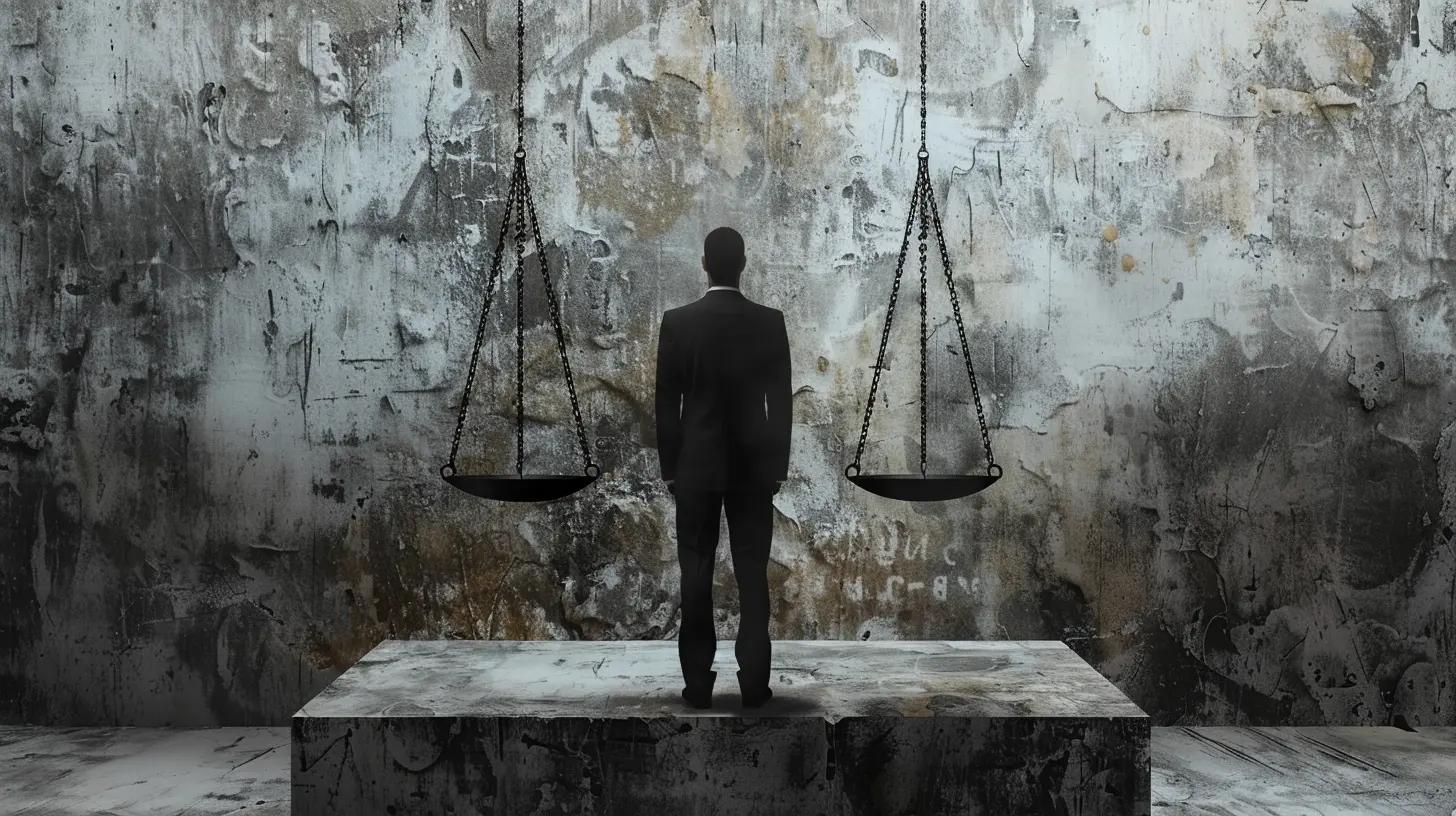The Illusion of Control: Believing We Have More Influence Than We Really Do
20 June 2025
Have you ever knocked on wood to avoid bad luck? Or maybe you wore your “lucky” socks during a big event, convinced they gave you an edge? If so, you’ve fallen for the illusion of control—the sneaky psychological trick that makes us believe we have more influence over events than we actually do.
But why do we cling to this illusion? And how does it shape the way we think, act, and make decisions? Let’s dive deep into the mind’s deceptive ways and uncover the truth behind our perceived control.

What Is the Illusion of Control?
The illusion of control is our tendency to believe we have power over outcomes when, in reality, we don’t. It’s like thinking you can control the weather by carrying an umbrella or influencing a football game by sitting in your "lucky chair."This cognitive bias gives us a false sense of certainty in an unpredictable world. It’s comforting, sure, but it also leads to overconfidence, risky decisions, and unrealistic expectations.
The Origin of This Mental Trick
The term illusion of control was first coined by psychologist Ellen Langer in 1975. Her research found that people often believe they have control even in purely chance-based situations, like gambling.In one experiment, lottery participants were either allowed to choose their own numbers or given random ones. Unsurprisingly, those who picked their own numbers felt they had a higher chance of winning—even though lotteries are entirely random.
This study laid the groundwork for understanding how deeply ingrained this illusion is in human psychology.

Real-Life Examples of the Illusion of Control
The illusion of control pops up everywhere in daily life. Sometimes, it’s harmless; other times, it leads to bad decisions. Let’s look at a few common scenarios.1. Gambling and Superstitions
Ever seen a gambler blow on dice before rolling? Or insist on using the same slot machine because it’s “lucky”? Those are classic signs of the illusion of control at play.Casinos thrive on this bias. Online and offline gambling environments often encourage actions—like letting players push buttons themselves—that make them feel more in control, even when outcomes are entirely random.
2. Investing and Financial Decisions
Stock market investors often believe they can predict movements, even when their guesses are no better than random chance. Overconfidence in financial markets can lead to risky investments and devastating losses.Many traders convince themselves that their gut feeling or past successes mean they truly understand the market. But in reality? Even experts struggle to outperform a simple index fund over time.
3. Driving and Personal Abilities
Most people think they’re above-average drivers (statistically impossible, by the way). This overconfidence leads to riskier behaviors like speeding, texting while driving, or ignoring weather conditions—because, of course, that kind of thing doesn’t happen to us.We falsely believe that as long as we are behind the wheel, we’re in control—ignoring the unpredictable nature of other drivers, road conditions, and random accidents.
4. The Workplace and Leadership
Managers and business leaders often assume they have more control over team success than they really do. A CEO might believe their decisions alone drive a company’s growth, while ignoring external factors like market trends, competition, or economic downturns.Yes, leadership matters—but external forces often play a bigger role than we'd like to admit.

Why Do We Fall for This Illusion?
If the illusion of control is so misleading, why does it persist? Turns out, it actually serves some psychological benefits.1. It Reduces Anxiety
The world is chaotic. If we truly acknowledged how little control we have, we'd probably be paralyzed by fear. Believing we can influence random outcomes makes life feel more predictable and manageable.That’s why rituals and superstitions—whether it's lucky charms or pre-game routines—are so common. They give us a comforting sense of stability, even if they don’t actually change anything.
2. It Boosts Confidence
Feeling in control makes us more confident, which isn’t necessarily a bad thing. Athletes, performers, and professionals often use this illusion to enhance their focus and motivation.Ever heard of the placebo effect? If we believe something will work—even if it doesn’t scientifically—it often does help us perform better simply because we think it will.
3. It Encourages Action
If we always acknowledged how little control we have, we might never take risks or make decisions. The illusion of control pushes us to try, to take chances, and to believe in our own agency—even when outcomes aren’t fully in our hands.Think about entrepreneurs. They know that success depends on many external factors, yet they push forward anyway. Without some level of perceived control, many great ideas would never come to life.

The Dark Side of the Illusion of Control
While this illusion has its benefits, it also comes with pitfalls. When we believe we have more control than we actually do, we can make dangerous decisions.1. Overconfidence Leads to Risky Behavior
People who believe they have control often take unnecessary risks. Whether it’s gambling, investing recklessly, or ignoring expert advice, this false sense of power can lead to disaster.Ever heard of someone refusing medical treatment because they think they can "beat" a disease with willpower alone? That’s the illusion of control in its most dangerous form.
2. Blaming Ourselves for Uncontrollable Events
Sometimes, we take this illusion too far and blame ourselves when things go wrong—even when they were never in our control.Didn’t get the job? You might think you didn’t "try hard enough," even if the company had already chosen someone internally. This misplaced guilt can lead to unnecessary stress and self-doubt.
3. Struggles with Mental Health
People with anxiety and obsessive-compulsive disorder (OCD) often try to control every aspect of their environment to feel safe. Unfortunately, when that control inevitably proves to be an illusion, it can cause deep distress.The more we try to control the uncontrollable, the more we set ourselves up for frustration and disappointment.
How to Break Free from the Illusion of Control
So, if the illusion of control is both helpful and harmful, how do we manage it? Here are a few ways to strike a balance.1. Recognize When You're Overestimating Control
The first step is awareness. Ask yourself: Am I really in control here, or is this just an illusion? Being mindful of this bias can help you make more rational decisions.2. Focus on What You Can Control
You may not control everything, but you do have influence over some aspects of life. Instead of stressing over fate, focus on areas where your actions truly matter—like improving skills, making informed choices, and cultivating healthy habits.3. Accept Uncertainty
Life is unpredictable. And that's okay. While it’s natural to seek control, learning to embrace uncertainty can reduce anxiety and help you adapt to whatever comes your way.4. Use the Illusion to Your Advantage
In some cases, believing in control can boost confidence and motivation—as long as you don’t let it cloud your judgment. If a lucky ritual helps you focus before a big event, great! Just don’t start making major life decisions based on superstition.
Final Thoughts
The illusion of control is a double-edged sword. It can boost confidence, reduce anxiety, and encourage action—but it can also lead to overconfidence, poor decisions, and unnecessary stress.The key? Awareness. By recognizing when this illusion is at play, we can make smarter choices without falling into self-deception. So next time you catch yourself believing you're in control of something completely random, take a step back. You’re not a magician—but you do have the power to shift your mindset.
all images in this post were generated using AI tools
Category:
Psychological BiasAuthor:

Matilda Whitley
Discussion
rate this article
2 comments
Kathleen Vance
This article compellingly highlights how overestimating control can lead to anxiety and distorted decision-making.
September 29, 2025 at 4:37 AM

Matilda Whitley
Thank you for your insightful comment! I'm glad the article resonated with you and underscored the impact of overestimating control on our mental well-being and decision-making.
Carina Diaz
Great insights! It’s fascinating how our minds can create the illusion of control. Understanding this can empower us to embrace uncertainty and focus on what we can truly influence. Thanks for sharing!
June 22, 2025 at 2:58 AM

Matilda Whitley
Thank you! I'm glad you found the insights helpful. Embracing uncertainty can indeed lead to empowerment.


